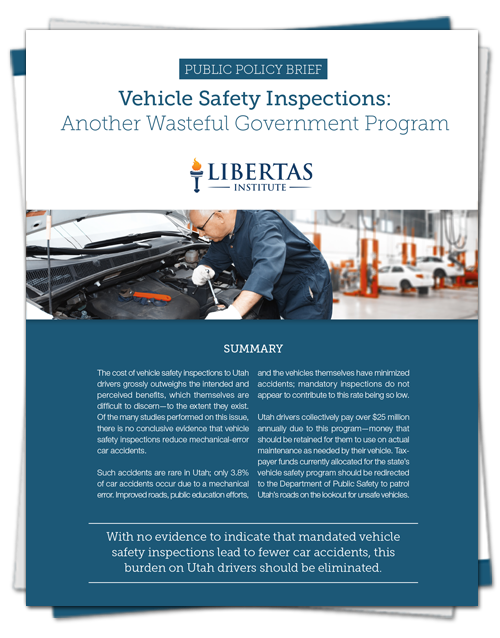Authored by Audrey Carlston, Policy Analyst
 The cost of vehicle safety inspections to Utah drivers grossly outweighs the intended and perceived bene ts, which themselves are dif cult to discern—to the extent they exist. Of the many studies performed on this issue, there is no conclusive evidence that vehicle safety inspections reduce mechanical-error car accidents.
The cost of vehicle safety inspections to Utah drivers grossly outweighs the intended and perceived bene ts, which themselves are dif cult to discern—to the extent they exist. Of the many studies performed on this issue, there is no conclusive evidence that vehicle safety inspections reduce mechanical-error car accidents.
Such accidents are rare in Utah; only 3.8% of car accidents occur due to a mechanical error. Improved roads, public education efforts and the vehicles themselves have minimized accidents; mandatory inspections do not appear to contribute to this rate being so low.
Utah drivers collectively pay over $25 million annually due to this program—money that should be retained for them to use on actual maintenance as needed by their vehicle. Tax- payer funds currently allocated for the state’s vehicle safety program should be redirected to the Department of Public Safety to patrol Utah’s roads on the lookout for unsafe vehicles.





